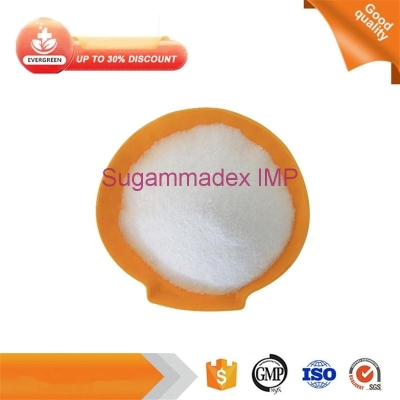What happens when the brain gets older? Nature's new discovery refreshes a century-old awareness
-
Last Update: 2020-07-15
-
Source: Internet
-
Author: User
Search more information of high quality chemicals, good prices and reliable suppliers, visit
www.echemi.com
A research paper on the "blood-brain barrier" has recently been published in nature, a leading academic journalScientists from Stanford University School of Medicine found a surprising phenomenon when comparing the brains of young and older mice"This finding will change our understanding of the blood-brain barrier and its age-changing," Nature commentedIn today's article, the academic team will share the study with youabout 120 years ago, when scientists dyed tissues and organs throughout the body, they found a mysterious and special barrier that kept dye molecules transmitted through the blood out of brain tissueSubsequent studies have shown that, in addition to dyes, many substances in the blood stream, such as inflammatory factors, macromolecule drugs, etc., will be blocked by this layer of "blood-brain barrier" and cannot easily penetrate brain tissueas you get older, like a disrepaired water pipe, the blood-brain barrier may also seepSeveral studies in recent years have found that the larger permeability of the blood-brain barrier is related to cognitive decline, for example, in patients with brain trauma and Alzheimer's disease, some neurotoxic protein molecules are more likely to "leak" into brain tissue from blood vessels, which may be an important factor in causing the lesionsRelated Reading: How to Make Your Brain Younger? Two papers in the same period reveal important new roles in reversing aging (pictured: 123RF)it's not hard to see the importance of the blood-brain barrier's inaccessibility protecting the brain from harm and creating problems for drug deliveryHowever, in the new study, scientists used a new method of tracing to find that the bleed-brain barrier in the young and healthy brain is not so osmotic! They allow a lot of protein in the blood to enter the brain, more than they do into the elderly brain, and at a faster rate than previously thought, unlike previous studies of the blood-brain barrier, the team, led by Professor Tony Wyss-Coray, did not use the method of injecting an exoplanet, but instead labeled hundreds of endogenous proteins that make up plasma and then tracked their movements throughout the mouse body, especially with the blood-brain barrierthey found that in healthy young mice, there were far more plasma proteins entering the brain than previously thoughtThe researchers speculated that they may interact with neural loops to regulate various neurological functions such as mood and behavior, in older mice, the amount of plasma protein that permeates the brain was lowerThe results are surprising, after all, past studies using exoplanets have shown that the permeability of the blood-brain barrier increases as we agethis seemingly contradictory result, it was explained by further research by the researchers on the mechanism of protein transport It turned out that the vascular endothelial cells, the main component of the blood-brain barrier, played a role in restricting the flow of proteins, but many receptors were distributed on these cells In the young brain, these receptors bind to specific proteins, forming a courier package of "vesicles" that transport these endogenous proteins through cells In older mice, the delivery of receptor-mediated proteins decreased significantly; to understand the mechanism by which the blood-brain barrier transports proteins, the researchers also examined genes expressed by endothelial cells to find genes that affect plasma protein intake "These genes may help to identify transmembrane receptors associated with receptor-mediated transport." The researchers said These receptors can be used to design "Trojan horses" that help drug molecules move across the blood-brain barrier to the brain , for example, it has been found in the past that the transferrin receptor is a "carrying" receptor in the blood-brain barrier, so drug developers have managed to make it play the role of a "Trojan horse" to bring macromolecule drugs into the brain study found that the effectiveness of this "Trojan horse" also decreases with age But the researchers found a gene, Alpl, and found that its expression increased in endothelial cells in older mice, which, when inhibited by the drug, alpl-encoded proteins, a phosphatase, increased the delivery of ferritin receptors The findings not only shed light on the blood-brain barrier function of the healthy brain, helping researchers understand how the blood-brain barrier plays a role in diseases such as Alzheimer's that involve cognitive decline, but could also lead to new ways to help us deliver drugs to the brain, the authors of the study concluded (
Bio valley Bioon.com)
This article is an English version of an article which is originally in the Chinese language on echemi.com and is provided for information purposes only.
This website makes no representation or warranty of any kind, either expressed or implied, as to the accuracy, completeness ownership or reliability of
the article or any translations thereof. If you have any concerns or complaints relating to the article, please send an email, providing a detailed
description of the concern or complaint, to
service@echemi.com. A staff member will contact you within 5 working days. Once verified, infringing content
will be removed immediately.







